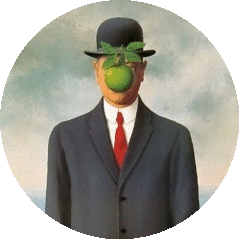Let's stop using the 'It Depends' answer
Everybody knows the consultant’s favorite answer to any question:
It Depends
It’s such a cliché that even us consultants joke about it all the time. Defenders of the cliché argue that this is actually a good thing, because anyone who’s too quick to answer is:
- probably trying to sell you their (predetermined) solution
- oversimplifying the situation
- unaware of your unique situation and constraints
- all of the above
Some will even put the blame on the questioner, arguing that a vague question deserves a vague answer.
While all those arguments have some truth, lately I’ve come to believe that “It depends” has become a conversational crutch for us.
To show you what I mean, put yourself in the shoes of someone asking these questions:
- “Doctor, should I be worried about my headaches?”
- “How much will you charge to fix the broken dishwasher?”
- “Who’s the best IP lawyer in town?”
- “Where shall we go for lunch today?”
If you heard “It depends” in response to any of these questions, you’d react with annoyance or outright anger.
Here’s why: the question may have been vague, but the pain behind the question is real. And by saying “It depends” you’ve failed to engage with my real problem.
The Question Behind the Question
| What I asked | What I meant | My response to “It depends” |
|---|---|---|
| “Doctor, should I be worried about my headaches?” | Is something seriously wrong with my health? | I need to find a better doctor. |
| “How much will you charge to fix the broken dishwasher?” | Just tell me how much money I’m losing | I need a second opinion. |
Of course the client can’t describe their problem precisely. If they could, they wouldn’t need your help would they?
By saying “It depends, you can do X or Y or Z” I’m being self-focused. I am simultaneously showing off my knowledge of X, Y and Z, while putting the onus of choosing one of X/Y/Z back on them.
They shouldn’t have to do that. It’s my job to guide them to the right solution for their particular problem.
There are many tools to do this - Socratic questioning, active listening, asking for specific examples, etc. But the key is to grasp that you need to start digging deeper.
So whenever I feel the urge to say “It depends,” instead I do the following:
- Pause.
- Think about the question behind the question. What are they really asking?
- If they are indicating a pain point: say “Tell me more”
- If they’re looking for a bottom-line or worst case answer, say “I don’t know, but here’s what we can do to get you that answer.”
- If they’re looking for recommendations or starting points for their own research, say “Here are some places to start. By the way, why are you interested in ___ ?”
- If they’re asking for pure information purposes, just give them your honest (even biased) opinion.
| Question | Type | Better Response |
|---|---|---|
| “Doctor, should I be worried about my headaches?” | Indicating pain or fear | “Tell me more about these headaches.” |
| “How much will you charge to fix the broken dishwasher?” | Seeking worst-case or bottom-line number | “I don’t know yet, but I can tell you in 30 minutes once I’ve opened up the machine.” |
| “Who’s the best IP lawyer in town?” | Seeking recommendations | “You can start by looking at abc.com, or I can connect you with Jane Jones who’s done some work with IP lawyers recently. By the way, why are you looking for IP lawyers?” |
| “Where shall we go for lunch today?” | Collecting opinions | How about Thai food or burgers? |
By doing this, I open up the window for a deeper, more meaningful conversation. And only by engaging in that conversation will I ever find the best answer for them.
Update: of course I’m not the first one to think of this. Here are some past references that echo similar sentiments, definitely worth your time. As HBR put it,
Mazzeo’s Law: The answer to every strategic question is “It depends.” Corollary: The trick is knowing what it depends on.
